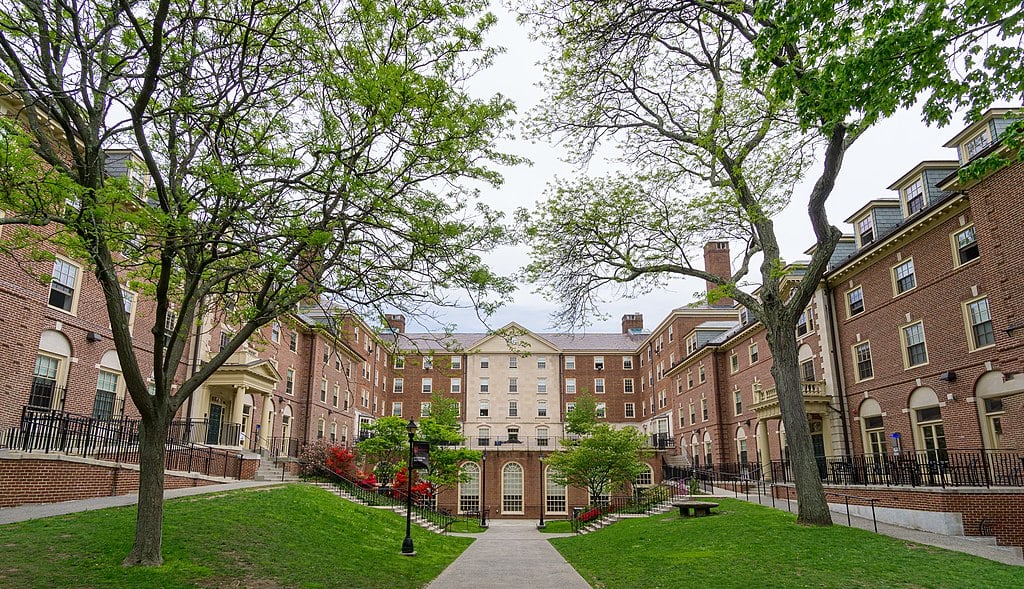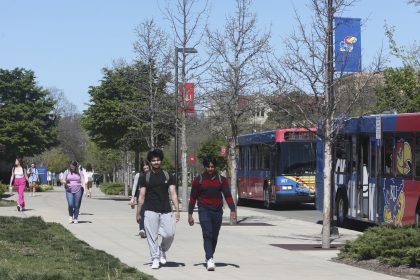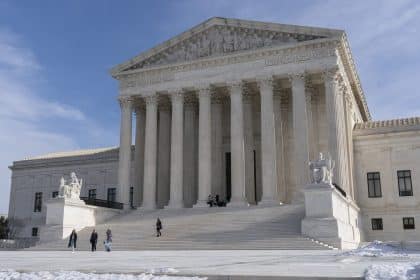Brown University Denies Readmission to Dozens of Students on Mental Health Leave

PROVIDENCE, R.I. — The Justice Department and U.S. Attorney’s Office for the District of Rhode Island recently announced a settlement agreement with Brown University, which denied readmissions to undergraduate students taking medical leave for mental health.
“The settlement should not be misunderstood as agreement with the claims against Brown’s handling of requests for readmission during this time period. We maintain that any denials of requests for readmission were made for non-discriminatory reasons in compliance with the University’s policies and the ADA,” said Cass Cliatt, senior vice president for communications at Brown University.
The U.S. Attorney’s Office and the Justice Department’s investigation found that between fall 2012 and spring 2017, dozens of undergraduate students were denied readmission to Brown after taking mental health-related medical leave.
According to the findings of the investigation, the students met the requirement for returning to Brown, and the students’ treatment providers reported to Brown that the students were ready to resume their studies and participate in campus life.
Yet, the investigation findings show that Brown denied the students’ applications for readmission, depriving these students of the opportunity to participate in and benefit from Brown’s educational programs.
The investigation also found that Brown imposed eligibility criteria that screened out or tended to screen out students with mental health disabilities from fully and equally enjoying Brown’s goods, services, facilities, privileges, and advantages.
All of the university’s actions were found to violate Title III of the Americans with Disabilities Act, which requires places of public accommodation, like colleges and universities, to provide individuals with disabilities, including mental health disabilities, with an equal opportunity to participate in their programs and services.
Under the settlement agreement, Brown must now revise its undergraduate leave policies and practices to be consistent with Title III, provide trainings on the ADA to faculty and staff who evaluate and make decisions about student requests to take or return from a leave of absence, and pay $684,000 to compensate the undergraduate students who were harmed by the denial of readmission.
However, while Brown agreed to the settlement, the university denies that it ever violated Title III of the ADA in its handling of requests for readmission from a medical leave of absence for mental health reasons in the fall of 2012 through the spring of 2017 semesters.
“The Department of Justice reviewed Brown’s undergraduate medical leave readmission policies and procedures that were in effect for a period five to nine years ago. I want to stress that point. Brown has made comprehensive changes to its policies since then,” said Cliatt.
Cliatt said the settlement agreement made public on August 10 relates to a review of student requests to return from medical leaves from 2012 to 2017, but the five-year period immediately precedes comprehensive changes to Brown’s medical leave policies and procedures, which started in 2015 and were completed in 2017.
“In August 2017, based on an assessment of best practices and on direct input from students, the University implemented a comprehensive revision of medical leave policies and procedures. The resulting changes enhanced the ability of students to attend to their health and well-being while away from the rigors of study, while providing clear and consistent guidelines for seeking a return to campus,” said Cliatt.
The university did not provide TWN records of any guidance which existed prior to 2017, but according to guidance published in 2018, the guidelines for the university were indeed updated in fall 2017 to “make it more transparent.”
However, the guidance published in 2018, “requires that a Medical Leave in Lieu of Academic Suspension lasts at least two semesters—as for all academic suspensions,” and says that students who have been away for more than five years will need to be evaluated by the dean of the College and Degree Completion Committee to review the feasibility of clearance.
This confirmed the findings of the U.S. Attorney’s Office and the Justice Department’s investigation, that Brown required undergraduate students taking a medical leave for mental health reasons to remain on leave for at least two full semesters and failed to reasonably modify this requirement where the student requested an earlier return, and the student met all of the requirements for returning to school, except for being on leave for at least two semesters.
A day before the settlement agreement became public, Brown updated the guidance, which no longer requires a full two semester leave, and instead it states that, “many students choose to take two or more semesters while others return after one semester.”
The newly updated guidance also shortens the previous evaluation timeframe of five years to three years for students who have been away. The updated guidance indicates the student should meet with the dean of the College and Degree Completion Committee to discuss, “whether there is a viable path to degree completion, or any degree requirement policy changes since the initial enrollment.”
New language that, “Brown administers medical leaves in a nondiscriminatory manner,” was also added into the new guidance that did not exist in the previous guidance documents.
Cliatt said that the university continues to review requests for return on a rolling basis to ensure timely decisions since the 2016-2017 academic year, and that since that time 98.1% of students who applied to return from a mental-health related medical leave were approved to return.
“Those who were not approved to return on their first petition are provided feedback and may petition in future semesters,” said Cliatt.
Brown must now take the necessary steps to develop an ADA training program within 60 business days from the effective date of the settlement agreement for all faculty and staff responsible for receiving, evaluating, and decision making regarding undergraduate students requests to take medical leaves of absence, and duration of the agreement will remain in place for three years.
“While we are confident that our prior policies and procedures complied with federal law, we believe that [the] settlement offers a more productive resolution than a protracted litigation process that would require financial and time investments that are better reserved for supporting student success on campus,” concluded Cliatt.























